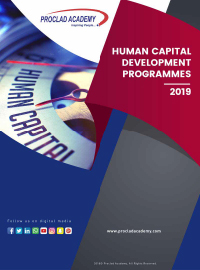Enhanced Oil Recovery (EOR)
| Ref No. | Dates | Venue | Fee (US$) | |
|---|---|---|---|---|
| OG 011 | 19 - 23 Apr 2020 | Dubai | 4500 | Register |
| OG 011 | 23 - 27 Aug 2020 | Dubai | 4500 | Register |
| OG 011 | 20 - 24 Dec 2020 | Dubai | 4500 | Register |
Enhanced Oil Recovery (EOR)
Introduction
One-third to one-half of the original oil-in-place may remain in a reservoir as it reaches abandonment due to its economic limit. The primary reasons are; heterogeneity of the reservoir, unfavorable fluid properties, inefficient nature of the displacement process, oil price, and production cost considerations. The secondary reasons are; inappropriate development, inefficient reservoir management practices, and escalating costs of remedial interventions/corrective measures and producing operations. The oil recovery is generally lower than expected due to some combination of the above reasons. Gaining a better understanding of the reservoir and the important variables that influence the recovery process can enhance it.
Proclad Academy’s Enhanced Oil Recovery training course will enable participants to select the improved recovery method that best suits the conditions of the reservoir which they operate and also maximise reservoir recovery at the least cost, ensuring maximum investment efficiency. Technical challenges of enhanced oil recovery phase; increasing complexity, cost/benefit consideration, facilities modifications and personnel training will be discussed. A critical review of the emerging technologies, future R & D directions will be devoted an extensive coverage. Participants will learn to forecast reservoir performance under various EOR methods employing the proper empirical, analytical, and simulation tools.
Learning Objectives
The Enhanced Oil Recovery training course has both theoretical and practical components. Participants will:
- Learn How to select an EOR method
- Develop recovery expectations from reservoirs
- Determine reasons and causes for less than theoretically possible recovery
- Choose appropriate methods for improving oil recovery from reservoirs
- Understand mechanisms responsible for recovery improvement in various EOR methods
- Select EOR methods using screening criteria
- Acquire practical experience through examples
Target Audience
This training course is intended for all Engineers responsible for the exploitation of Hydrocarbon Reservoirs. The training is also suitable for Reservoirs Engineers, Managers and/or Supervisors of Reservoirs Engineers, Geologists, Geophysicists, Integrated Studies Engineers and Reservoirs Simulation Engineers.
Training Methodology
The Enhanced Oil Recovery training course incorporates inspiring lectures with structured lessons from the learning manual along with comprehensive workshops & case studies; captivating PowerPoint slides to enhance learning; ongoing discussions with action planning; ample time for Q&A; training activities to reinforce key concepts within a fun learning environment.
Course Outline
- Objective of the exploitation of Hydrocarbon Reservoirs
- Investment Efficiency
- Secondary Recovery and Enhanced Oil Recovery, difference of the concepts
- Ultimate Recovery Factor
- Properties affecting Ultimate Recovery Factors
- Bubble Point
- Viscosity
- Mobility/Mobility Ratio
- Capillary pressure
- Wettability
- Relative Permeability/Relative Permeability Curves
- API correlations for estimating Ultimate Recovery Factor
- Fundamentals
- Steam Stimulation
- Ninka Technology
- Steamflood
- Steam-Assisted Gravity Drainage (SAGD)
- In-Situ Combustion
- Other Thermal
- Alkalis, Surfactants and Polymers (ASP)
- Polymers Injection
- CO2 Injection
- Vapor Extraction (VAPEX)
- EOR Screening Criteria
- Technical challenges of enhanced oil recovery phase;
-
- Increasing complexity, cost/benefit consideration
- Facilities modifications
- Personnel training
- Case Studies
- Critical Review of Emerging Technologies
- Future R&D directions
- Discussions and Case Studies


